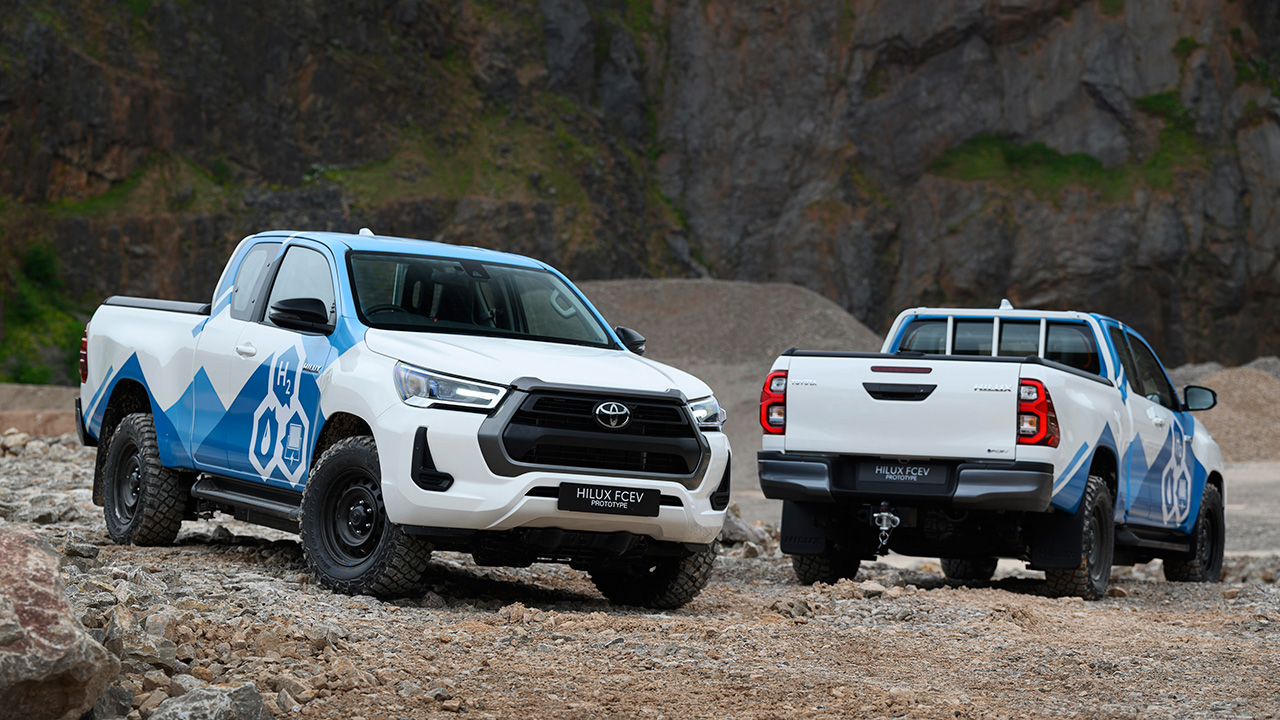Toyota Reveals Fuel Cell Hilux Prototypes for Real-World Testing and Showcases at Paris 2024 Olympics
Key Ideas
- Toyota Motor Manufacturing UK has built 10 hydrogen-powered fuel cell Hilux prototype vehicles in Derby, England.
- The prototypes are undergoing rigorous field testing to assess safety, performance, and durability, with plans for customer and media demonstrations at the Paris 2024 Olympics.
- The Fuel Cell Hilux features Toyota's advanced fuel cell technology, providing a range of up to 600 km, higher payload capacity, and zero exhaust emissions.
- The project aims to advance hydrogen technology, promoting the wider deployment of hydrogen ecosystems and infrastructure across Europe.
Toyota Motor Manufacturing UK has unveiled 10 hydrogen-powered fuel cell Hilux prototypes, marking a significant milestone in advancing sustainable transportation. These vehicles, built in Derby, England, are undergoing thorough field testing to evaluate safety, performance, and durability. The project also includes plans to showcase the prototypes at the Paris 2024 Olympic and Paralympic Games, demonstrating the potential of hydrogen fuel cell technology in real-world scenarios. The Fuel Cell Hilux retains the exterior appearance of the latest Hilux model but integrates Toyota's innovative fuel cell technology derived from the Mirai sedan. With a range of up to 600 km and the ability to carry heavier loads compared to electric alternatives, the Fuel Cell Hilux offers a promising solution for sustainable transportation. The prototypes feature high-pressure fuel tanks storing 7.8 kg of hydrogen, a fuel cell stack with 330 cells, and a rear-axle electric motor generating 134 kW of power. Notably, the fuel cell system produces only water as an emission, contributing to a cleaner environment. Additionally, the project includes a lithium-ion hybrid battery for storing electricity, ensuring optimal performance without compromising cabin space. Toyota views this project as a crucial step in advancing hydrogen technology and fostering the growth of hydrogen infrastructure across Europe, emphasizing the importance of sustainable and innovative transportation solutions.
Topics
Fuel Cells
Technology
Innovation
Sustainability
Electric Vehicles
Automotive
Manufacturing
Environment
Olympic Games
Latest News
